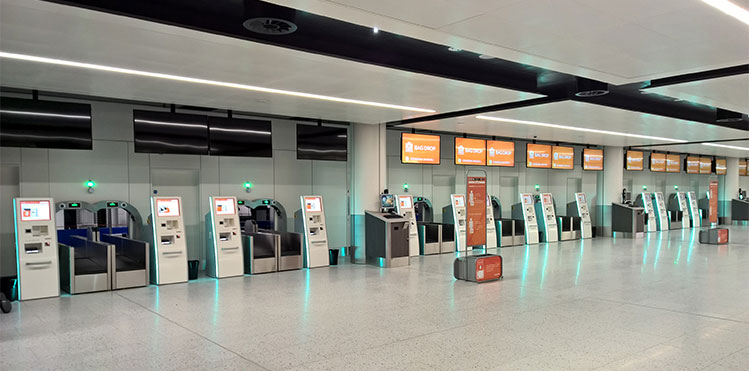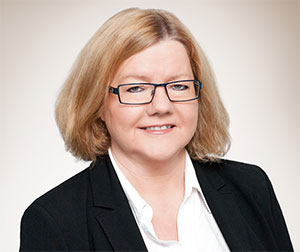
Lieselotte Neste, Executive Vice President, Business Line Mobility, Materna: “Passengers are developing a stronger tendency to use self bag drop systems, as they shorten waiting times and allow them to freely choose their walking paths at airports.”
Baggage handling automation is an increasingly prevalent contributor to both efficient airport operations and an enhanced passenger experience. Lieselotte Neste, Executive Vice President, Business Line Mobility, Materna, discussed the current trend of self bag drop systems to enhance automated processes with Marta Dimitrova.
The automation of key processes brings many advantages for growing airports, particularly in achieving the twin desires of increased efficiency and an optimal traveller experience.
Self bag drop is among the most important and successful developments. “The passengers themselves are developing a stronger tendency to use these systems, as they shorten waiting times and allow them to freely choose their walking paths at airports,” says Lieselotte Neste, Executive Vice President, Business Line Mobility, Materna. “Travellers also have much more influence on their baggage check-in time. We are overwhelmed by the positive feedback we have been receiving from our aviation customers, such as London Gatwick Airport with almost the largest installation of self bag drop systems worldwide.”
Indeed, Materna is currently working with London Gatwick to simplify the baggage handling process for passengers. In addition to allowing travellers to tag and drop off their bags themselves, an entirely new function is integrated payment for excess baggage, sporting equipment and other bulky items. These can be paid for directly by credit card at the self-service unit. “This makes London Gatwick the first airport worldwide to offer a true common use facility where kiosk payment is available for passengers who have checked-in their baggage themselves,” Neste contends. “We have also installed self bag drop units at Hamburg Airport, and a similar installation at John Wayne Airport in California is under preparation.”
“From less complex solutions to high-level customised solutions”

Lieselotte Neste, Executive Vice President, Business Line Mobility, explained that Materna is currently working with London Gatwick to simplify the baggage handling process for passengers. “In addition to allowing travellers to tag and drop off their bags themselves, an entirely new function is integrated payment for excess baggage, sporting equipment and other bulky items.”
It was announced in January that Materna Group, a supplier of automated passenger handling and ICT solutions, has acquired DSG BagDrop, a specialist in self-service bag drop solutions. While having complementary technologies, it is also a combination of DSG BagDrop’s Scandinavian design and Materna’s German engineering.
The acquisition is also important in terms of Materna’s growth strategy to further internationalise its aviation business. “DSG BagDrop has already penetrated the North American self bag drop market. This has created a golden opportunity for us to promote our North American business,” Neste explains. “In addition, we will have improved access to the Scandinavian market. We already have several self bag drop systems in our portfolio. With this acquisition, we will further expand our portfolio and provide a more comprehensive offer to our aviation customers – from less complex solutions to high-level customised solutions.”
Meanwhile, Materna has extended its range of products with a new retrofit kiosk – Merkur. “What’s so special about Merkur is that, although it is designed for unmanned baggage handling, the check-in desks where Merkur is installed can still be used for normal staffed check-in,” Neste comments. “Merkur can be deployed flexibly and fits in conveniently with existing conveyor systems at airports.”
Materna has developed the kiosk together with its partner company eKiosk. In addition to the printing function, Merkur also includes a scanning module that recognises and checks any tags on the baggage.
Progressive airports are constantly investing in innovative technologies to meet and exceed the expectations of travellers, and it is clear that these kind of self-service technologies are playing an ever-increasing role in empowering the passenger and enhancing the airport experience. It is a trend that is certain to continue and evolve further.







